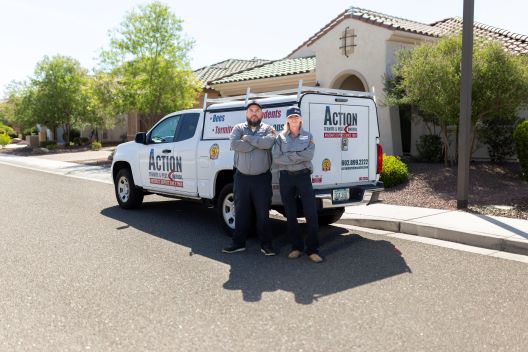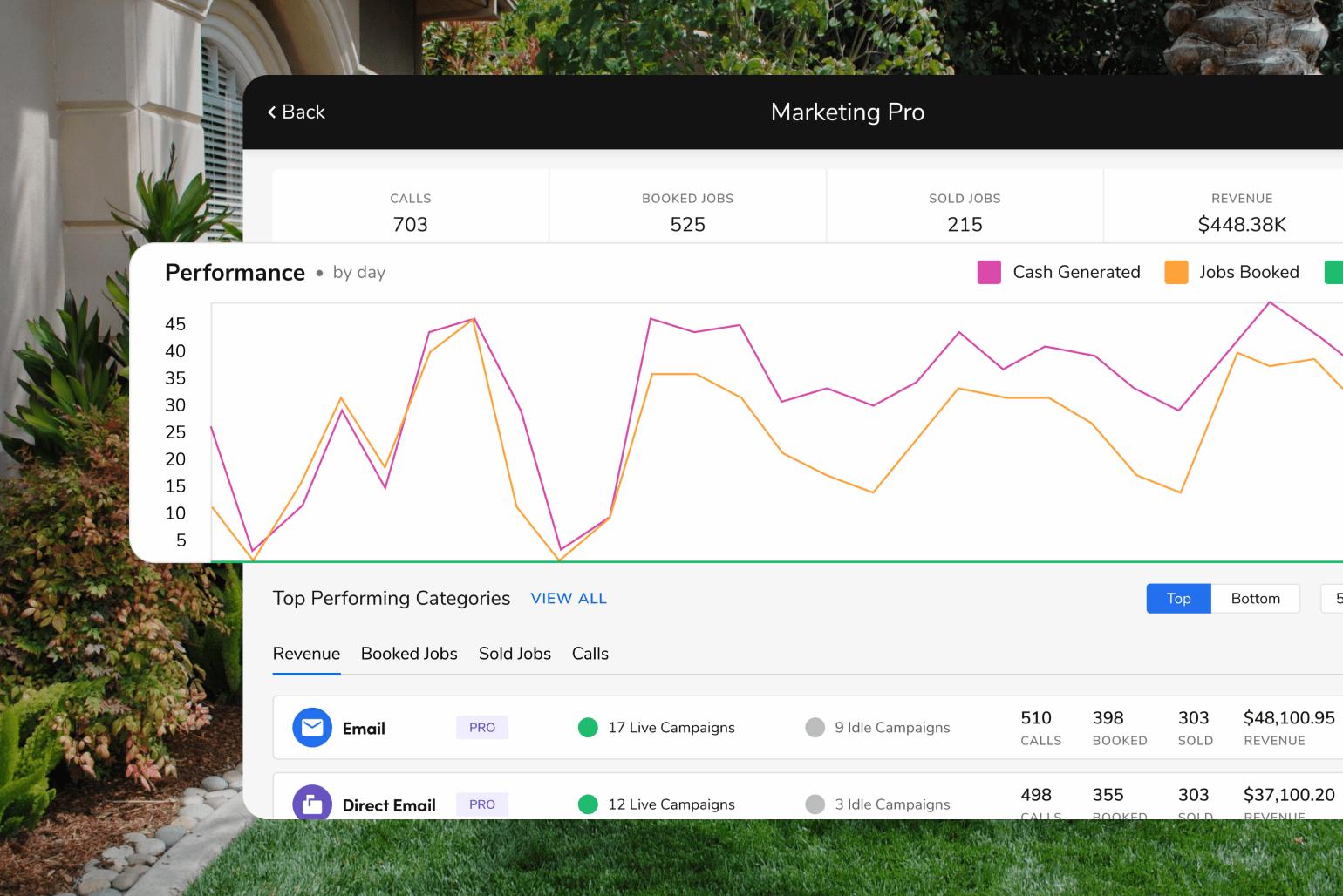How To Value & Sell A Lawn Care Business (Complete Guide)

Selling a lawn care business requires considerable preparation. You might not know exactly how much your business is worth, especially if you built it from the ground up.
To sell your company for top dollar, first determine its value and plan an exit strategy, including organizing business finances and updating operations to ensure a smooth transition to new owners.
In this guide, learn how to identify your business's value, prepare it for sale, and negotiate a profitable sale price with prospective buyers to maximize your return on investment.
How to Value a Lawn Care Business
A company’s value varies based on several factors. The following section explains common business valuation methods.
Multiple of Revenue
The multiple of revenue valuation method compares a company’s market value with its revenue. It’s often used for startups or companies generating little profit.
To calculate value using a multiple of revenue, divide a company’s market value by its annual revenue.
For example, if Company A generated $20,000 in annual revenue and its market value is $60,000, its revenue multiple is 3x.
This valuation relies on current market conditions and compares businesses with similar financial metrics.
Best for: Startup or unprofitable businesses
Drawback: It doesn’t calculate cash flow or the true value of a profitable business
Seller’s Discretionary Earnings (SDE)
SDE measures business earnings before the owner’s salary and benefits, as well as non-recurring expenses, taxes, interest, depreciation, and other discretionary costs. It’s often used to calculate the market value of small or mid-sized businesses earning less than $1 million.
SDE = Net profit + owner compensation + income taxes + nonoperating and nonrecurring expenses and income + depreciation and amortization
The SDE is then multiplied by an industry multiple, typically in the 2x to 6x range, to determine the estimated value.
For example, if Company A earned $200,000 in net profit and discretionary expenses total $120,000, its SDE equals $320,000. Using a 2x industry multiple, its estimated selling price is $640,000.
Best for: Small to mid-sized businesses
Drawback: It doesn’t accurately measure cash flow
Earnings Before Interest, Taxes, Depreciation, and Amortization (EBITDA)
EBITDA shows business earnings before interest, income taxes, depreciation, and amortization. It’s typically used to value mid-sized to large businesses and more accurately reflects a company’s profitability. Unlike SDE, it does not include the owner’s salary.
EBITDA = Net profit + interest + income taxes + depreciation and amortization
EBITDA is then multiplied by an industry multiple to determine the estimated value. In the landscaping industry, EBITDA multiples range from 4x to 7x.
For example, if Company A earned $2 million in net profit and has $200,000 in interest and $500,000 in depreciation, its EBITA is $2.7 million. Using a 4x multiple means its estimated value is $10.8 million.
Best for: Mid-sized to large businesses
Drawback: It may not show an accurate financial picture because it excludes capital expenditures
Preparing Your Business for Sale
Lawn care service business owners who adequately prepare for the sale sell their businesses more quickly and at a higher price. Profitable financial statements and efficient operations increase business value.
Follow these steps to prepare for a sale:
Optimize operations: Evaluate business processes and daily workflows to improve efficiency. Streamline estimating, scheduling, routing, and payments to save time on administrative tasks and increase profits.
Assess financials: Examine your balance sheet and follow up on unpaid invoices to clean up accounts receivables and increase working capital. Reconcile accounts and consider a professional audit to ensure financial accuracy.
Gather financial documents: According to the U.S. Chamber of Commerce, buyers typically want to see three to five years of income statements, cash flow statements, balance sheets, bank statements, and tax returns. Provide buyers with as much financial data as possible to show how profits have increased through the years.
FieldRoutes® lawn care software empowers landscapers to improve workflows, accurately manage data, and expedite payments.
A QuickBooks Online integration streamlines expense tracking, maintains accurate financial records, and facilitates customized reports. One platform simplifies the process as you prepare to sell your business.
Marketing Your Business for Sale
To sell your small business at a higher purchase price, promote what sets your business apart from other lawn care businesses.
Differentiate your business by demonstrating what makes you unique. A competitive advantage and uncommon selling points make your company look more attractive to buyers.
Focusing on the following components to market your business:
Specialized services: Do you offer niche services like eco-friendly lawn care or tree removal? Highlight these services and explain how your company stands out in the market.
Experienced employees: A proficient management team and skilled employees strengthen your business and boost company value.
Diverse customer base: If your client list is part of the sale, show a breakdown between residential and commercial clients and the number of long-term contracts. Comply with your state’s privacy laws to avoid legal issues.
Equipment and technology: Well-maintained mowers and equipment increase a company's value. Demonstrate how your business technology increases efficiency and profit.
Marketing tools like ServiceTitan Marketing Pro integrated with FieldRoutes improve marketing campaigns and generate more leads and customers. Pre-built lawn care marketing templates help businesses simplify email marketing and quickly build targeted, effective campaigns.
Identifying Potential Buyers
Finding the right buyer is one of the most challenging aspects of selling your business. Possible buyers include entrepreneurs, private equity groups, or merger and acquisition companies.
To find the best buyer:
Use your professional network: Communicate your plans to your professional network. This will attract the interest of individuals seeking to start or expand businesses.
List in online directories: Online business sale listings promote your sale. Before posting, identify reputable sites and research upfront costs and any fees applied when the business sells.
Advertise in the industry: Ads in industry publications cater to landscaping professionals who want to expand their businesses. Attend national or regional lawn care industry events to find interested buyers.
Hire a professional: Business brokers and investment bankers find buyers and assist in selling. Examine their fees and track records and look for those with experience selling lawn care businesses. Consider hiring a business attorney and accountant for additional support.
Negotiating Terms and Conditions
It’s common for the buyer and seller to negotiate terms and conditions before a business sells.
Typical business sale negotiations include:
Sale price: Business value gives you the advantage in sale price negotiations. Back up your negotiations with financial evidence to receive as close to your asking price as possible.
Sale and payment terms: Buyers and sellers negotiate equipment, inventory, assets, liabilities, and jobs in progress. Payment terms define how much the buyer pays at closing or earnout arrangements, where the seller finances the business based on future performance.
Covenants: Covenants are agreed-upon actions the buyer and seller take before and after the sale. For instance, a non-compete agreement covenant forbids the seller from starting a competing business. Covenants typically protect the buyer before a business sale closes.
Representations and warranties: This allows the buyer to perform due diligence to confirm the accuracy of a company’s legal and financial standings. If the buyer discovers false representations or statements, it results in renegotiation.
Document negotiated terms to eliminate misunderstandings. Hire legal professionals to minimize liabilities and ensure the purchase agreement and contract of sale complies with regulations.
Ensuring a Seamless Post-Sale Transition
Create a transition plan to ensure a smooth changeover. Clearly communicate buyer and seller responsibilities and document these agreements to avoid potential legal issues.
Mitigate the transition by:
Communicating with stakeholders. Determine the best time to tell employees about the business sale and introduce them to the new owners. Notify customers, suppliers, and other stakeholders to minimize disruption and build confidence.
Training on business processes. Buyers want to know how to run a successful business. Document business processes and train the owner on estimating, sales, and invoicing workflows. Include managers and key employees in the training process.
Providing ongoing support. Develop a plan for ongoing support. Consider creating an advisory role to provide support for a specific timeframe.
Lawn care business software provides built-in workflows that simplify tasks and streamline operations for a smooth transition.
Use the Right Software to Help the Sales Process
Business valuation calculations help identify the right selling price for your landscaping company.
FieldRoutes puts real-time data at your fingertips for a successful sale. Its centralized system allows data to be filtered by branch, division, service type, or crew leader for a granular view of direct costs and profits.
Interactive dashboards provide a clear overview of operations to empower informed, proactive decision-making.
FieldRoutes’ end-to-end functionality improves productivity and performance, increasing the profitability and value of your business.
Schedule a demo to see how FieldRoutes transforms business.
Frequently Asked Questions (FAQs)
Find answers to frequently asked questions about the lawn care business.
Q1. How Do You Know It’s Time to Sell Your Lawn Care Business?
Lawn care business owners decide to sell for several reasons. They may want to start a new venture, capitalize on business profitability, or retire.
It can be challenging to decide whether to sell your business. If you’re unsure, calculate your company’s profitability and value before determining the next steps.
Q2. How Long Does It Take to Sell a Business?
According to business experts, selling a business can take anywhere from six months to one year. The California Association of Business Brokers says it takes eight to 10 months on average.
The time varies based on financial preparations and negotiations between buyer and seller. The more prepared the seller, the more likely a business will sell quickly.
Q3. Should I Use a Business Broker?
Using a business broker depends on your experience and financial needs. A business broker values your business, finds buyers, and assists in selling. They also charge commissions and may not know the lawn care industry.
If you decide to use a broker, research their reputation and performance. Other options include business attorneys and certified public accountants.





